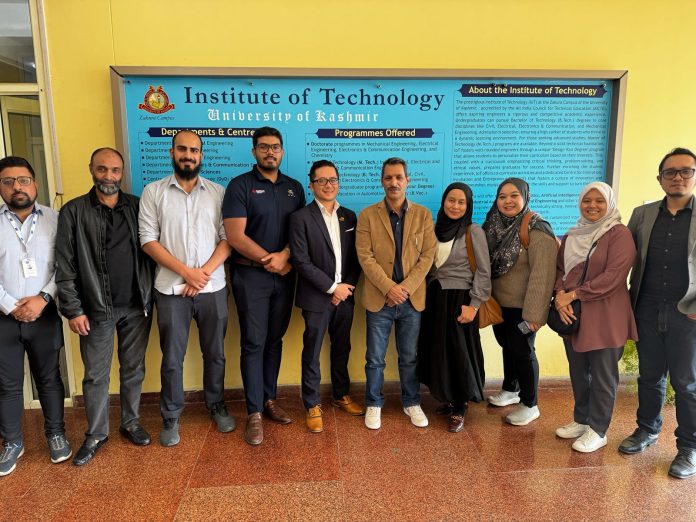Collaboration opportunities between KU, Malaysian universities on anvil
SRINAGAR: To explore collaboration opportunities and strengthen academic ties, enhance educational experiences and encourage mutual growth through various initiatives, a delegation from Malaysian universities recently visited the University of Kashmir (KU) that was led by Raja Fariz Raja Eyuddin from Education Malaysia Global Services.
The delegation met KU Vice Chancellor, Prof Nilofer Khan and KU Registrar, Prof Naseer Iqbal and had detailed discussions about the possible collaboration with the University of Kashmir.
The visit, facilitated by Prezlaan Education Services, Baghat, Srinagar, included representatives from Universiti Teknologi Petronas, Universiti Teknologi Malaysia, Education Malaysia Global Service and Asia Pacific University.
Expressing her optimism about the proposed collaborations, Prof Nilofer Khan termed the visit an important step towards creating a robust academic partnership between KU and Malaysian universities.
“Through collaborative programmes, we can offer our students and faculty exposure to diverse cultural and educational perspectives, which is crucial for holistic development,” Prof Khan said.
Director, Institute of Technology (IoT), KU, Prof M Tariq Banday, highlighted potential areas of collaboration and the possible opportunities the partnership would bring, particularly in student and faculty exchange, joint degree programmes and research collaborations.
“By working together, we can achieve significant academic and cultural exchange, paving the way for innovative educational practices,” he said.
The discussions focused on establishing student exchange programmes, where students could experience different teaching methodologies and broaden their perspectives.
The proposed joint undergraduate and postgraduate programmes aim to combine expertise from both regions, enhancing employability and creating a competitive academic environment.
Fields such as engineering, business and environmental studies were identified for potential joint degree programmes.
The delegation also emphasised faculty exchange initiatives, where academic staff could share expertise and encourage collaborative research.
“Joint faculty supervision and research collaboration will significantly enrich our academic experiences, providing students with diverse perspectives and methodologies,” Prof Banday added.
Other proposals included the development of joint academic journals to publish collaborative research, organising joint workshops and tech fests and introducing summer and winter campus programmes that combine short-term courses and cultural activities.
The meeting concluded with an agreement to establish a structured collaboration framework.
The delegation plans to conduct online meetings to discuss the implementation of these initiatives further, marking the first step towards a long-term partnership.


